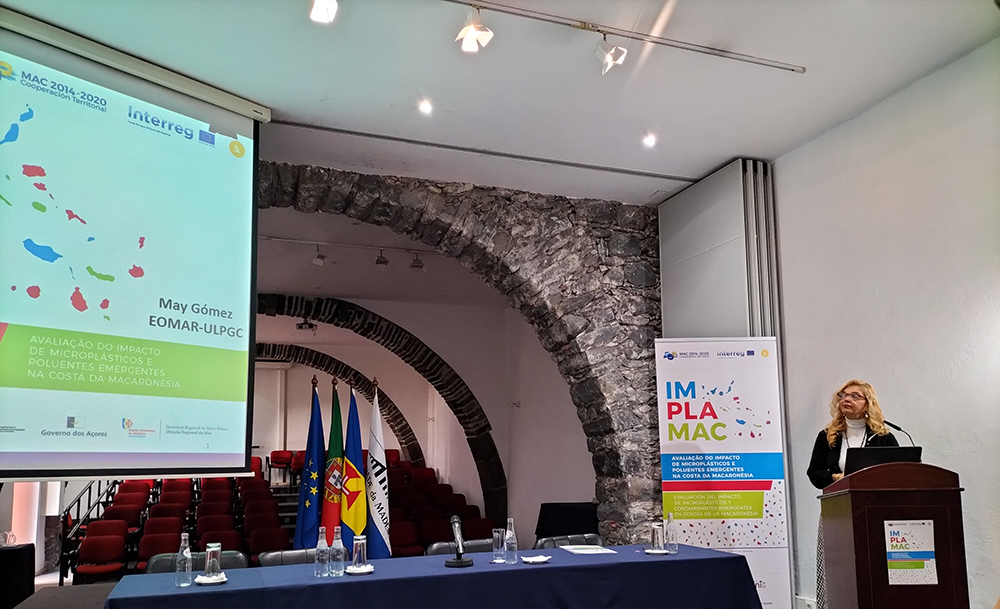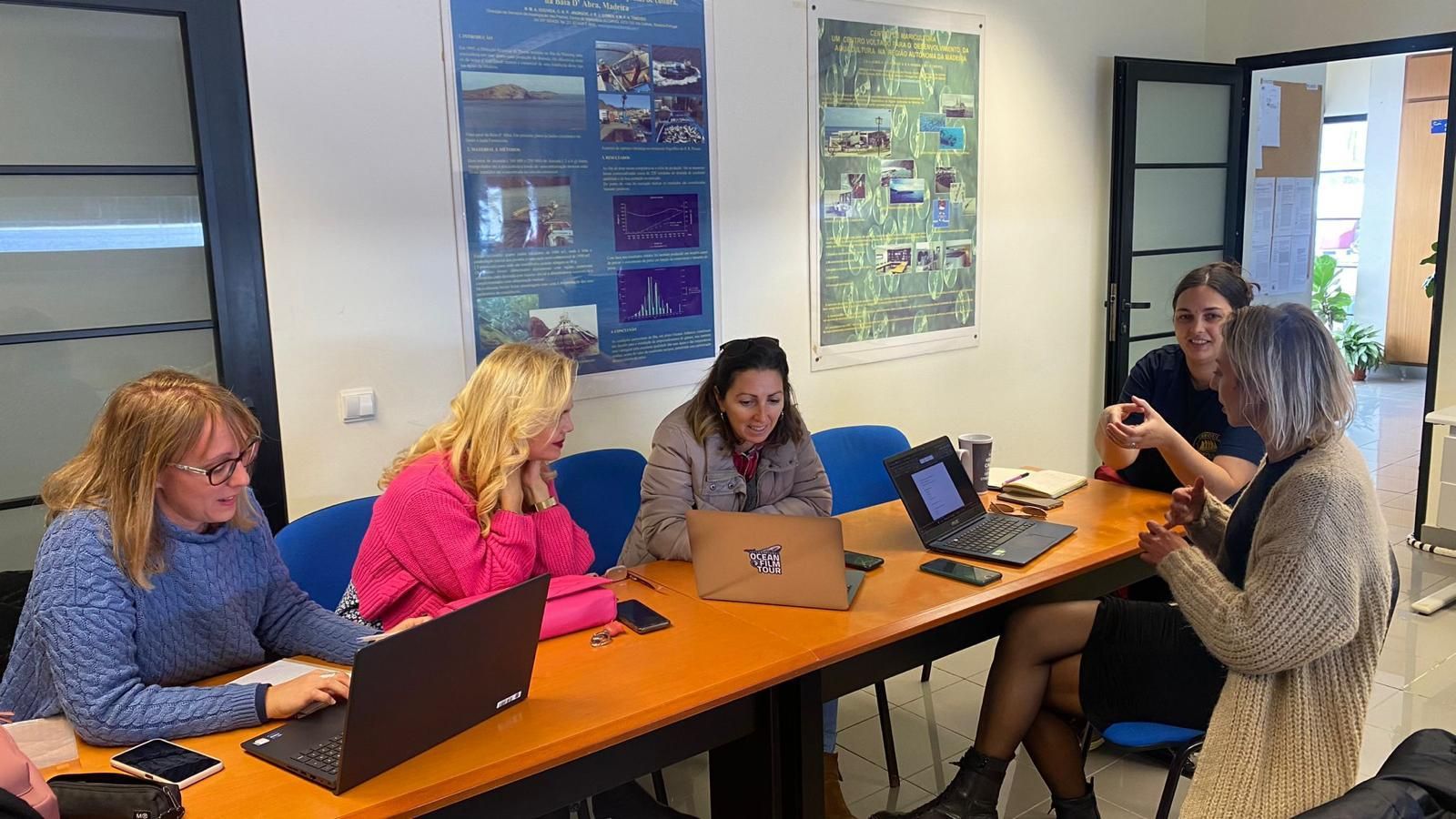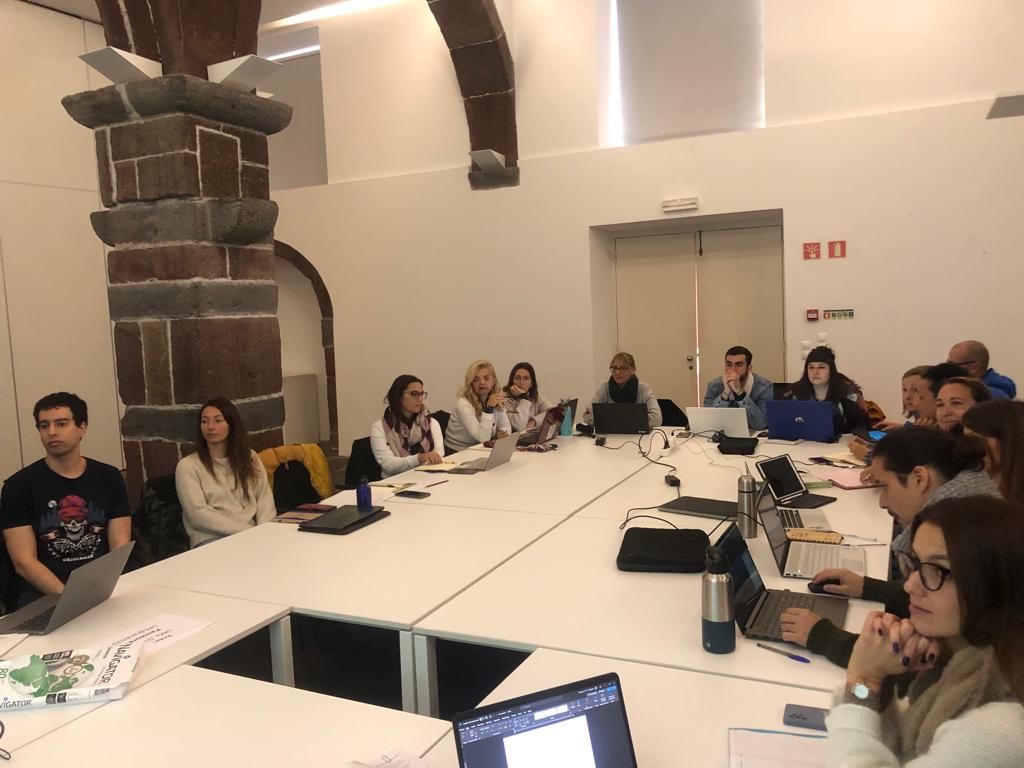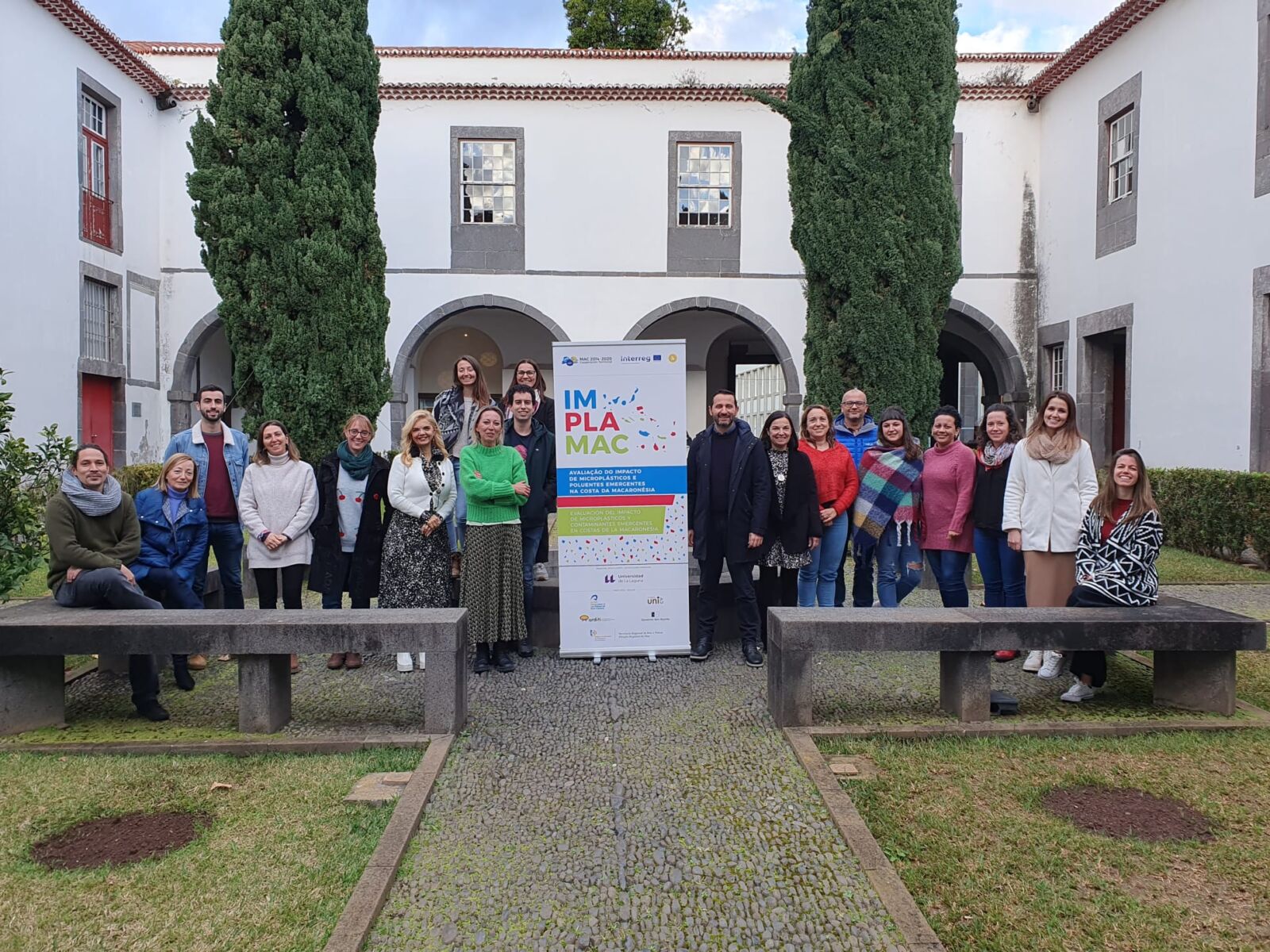Members of the EOMAR group attend the presentation of results of the IMPLAMAC project and prepare the final details on the island for an experiment to determine the impact on fish health due to the ingestion of microplastics
A representation of the EOMAR Group of the ECOAQUA Institute of the University of Las Palmas de Gran Canaria (ULPGC), formed by researchers May Gómez, Alicia Herrera and Ico Martínez, visited the Calheta Mariculture Center in Madeira on February 7th to finalise the preparations for the experiment that, within the framework of the IMPLAMAC project, will research in mesocosmos (a closed and controlled environment that recreates ocean conditions, in this case) the effect of microplastics ingestion on fish.
This research work, which will be carried out in collaboration with the Regional Secretariat for the Sea and Fisheries of Madeira, is about to start and will have a duration of three months. It is intended to complement the results presented these days in Madeira at the IMPLAMAC meeting.

Photo 1: Group photo of the different institutions and universities involved in the IMPLAMAC project, during their meeting in Madeira. Photo 2: May Gómez, during her presentation in Madeira, of the work carried out in IMPLAMAC at the ULPGC.
On February 8th and 9th, at the University of Madeira, a conference was held to present the preliminary results of this project called 'Evaluation of the impact of microplastics and emerging contaminants on the coasts of Macaronesia', an Interreg-MAC project led by the University of La Laguna (ULL) and in which the ULPGC participates as an associated entity through the University Institute ECOAQUA.
IMPLAMAC will extend until next month of September, has been funded with 1,340,000 euros from FEDER funds, and was designed to create an observatory with quantitative and qualitative data on the impact of microplastics and other pollutants on the beaches of the archipelagos of the Canary Islands, Cape Verde, Açores and Madeira.
The monitoring has achieved a total of 46 beaches in the four archipelagos, which has involved 400 samplings (almost 4,000 samples analysed), which has allowed to know the degree of contamination by existing microplastics, in addition to their impact on 747 specimens of 6 different species of fish and their effect on food chains and ecosystems.

Ico Martínez, May Gómez and Alicia Hererra during their visit to the Mariculture center in Calheta, Madeira.
IMPLAMAC is made up of six entities: the ULL, the ULPGC, the National Agency for the Development of Research, Technology and Innovation of Madeira, the Regional Secretariat for the Sea and Fisheries of Madeira, the Regional Directorate for Marine Affairs of the Açores and the University of Cape Verde.
The public sensitivity and communication of the research results have also been very important within the IMPLAMAC project, which has included sensitivity and environmental education actions for all audiences, such as, to date, 14 scientific publications, together with those expected to be published in the coming months, as a culmination of the project.
This line of research, for example, has made it possible to identify different 'hot spots' of massive arrival of microplastics in Macaronesia, such as Playa Grande, in Tenerife, Arenas Blancas, in El Hierro, Playa Lambra, in La Graciosa, and Caletillas, in the island of Fuerteventura. This result is an example of how, in general, all the archipelagos present similar patterns of arrival of microplastics. On the other hand, the analysis of the gastrointestinal contents of the fish also confirmed the existence of microplastics in more than half of the fish analysed.

Photo of the meeting of all IMPLAMAC project partners at the Rectorate of the University of Madeira in Funchal.
For more information:
Please contact Beatriz Díaz – beatriz@mandarinacomunicacion.es – 620410871


